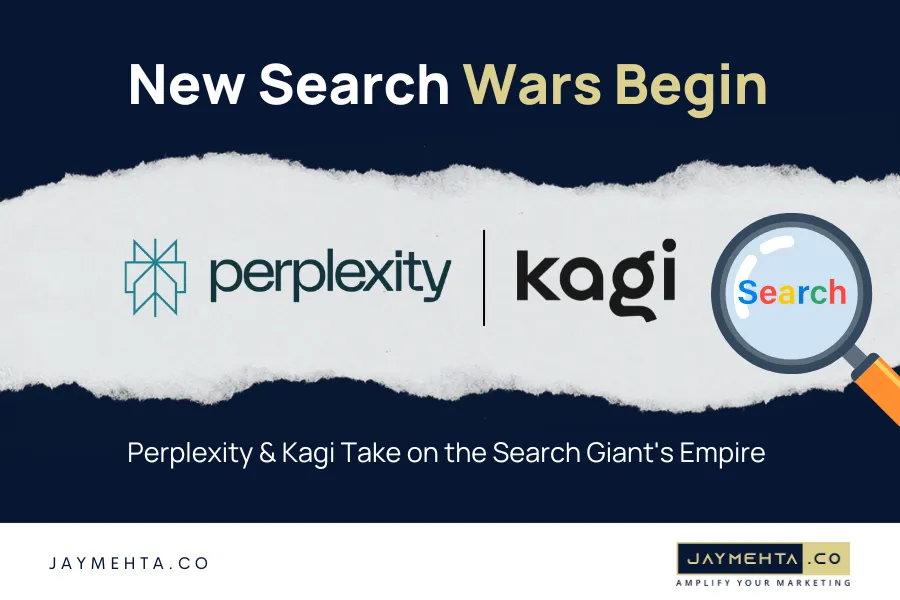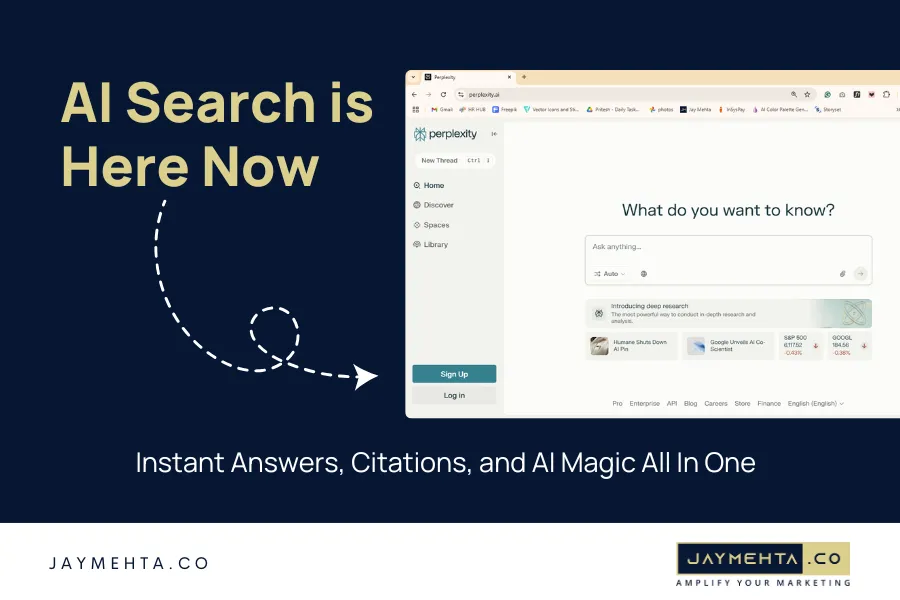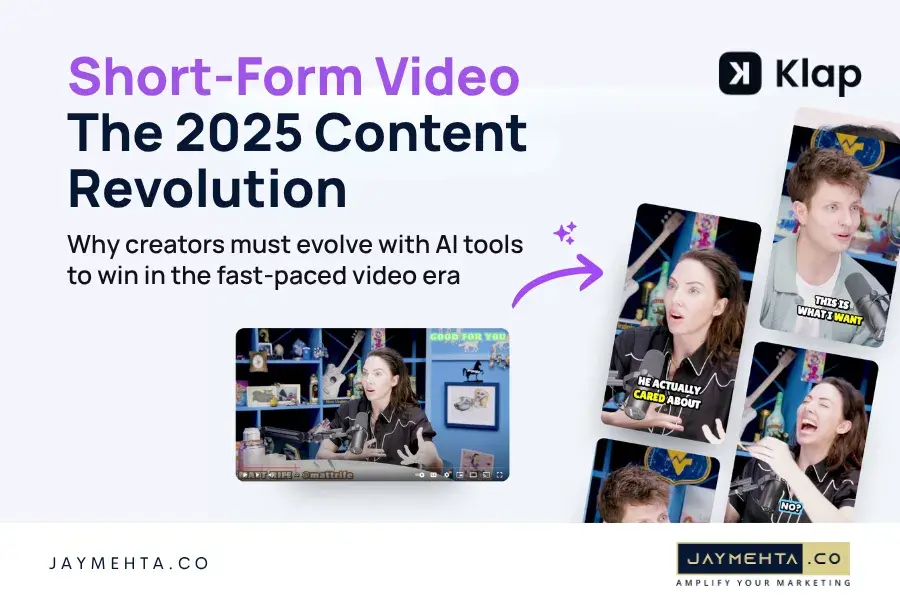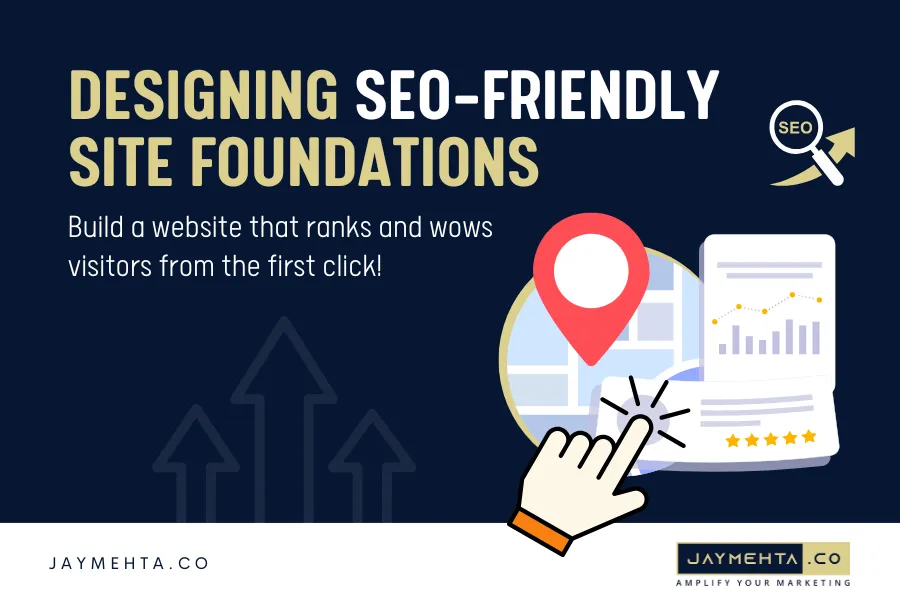For years, Google has reigned supreme in the world of search engines. However, with growing concerns about ad overload and privacy, users are seeking google search alternatives. Two names are increasingly popping up: Perplexity AI and Kagi search engine. Are these search engines the future, offering a better way to find information online? Let’s dive in and see how these innovative platforms are challenging Google’s dominance.
The Evolution of Search: Why Now
Google’s search engine, despite its technological sophistication, has faced growing criticism in recent years. Users complain about the increasing prevalence of SEO-optimized content, sponsored results, and the challenge of finding authentic, high-quality information amidst the noise. This dissatisfaction has created an opening for alternatives that prioritize user experience and information quality over advertising revenue.
The Problem with Google Search
The issues with Google Search can be broadly categorized into several key areas:
-
Information Quality
The rise of content farms and SEO manipulation has led to a decline in search result quality. Users often have to wade through multiple ad-filled pages before finding genuine, helpful content.
-
Privacy Concerns
Google’s business model relies heavily on cullecting user data for targeted advertising, raising privacy concerns among increasingly privacy-conscious users.
-
Filter Bubbles
Google’s personalization algorithms can create echo chambers, potentially limiting exposure to diverse perspectives and information.
-
Advertisement Overload
The increasing prominence of paid results and sponsored content has made it harder to distinguish genuine organic results from advertisements
These issues have created an opening for AI-powered search engines like Perplexity and Kagi search engine that prioritize user experience and information quality over advertising revenue.
Read Also: Unlock Business Growth with Two Main Online Advertising Forms
Perplexity: AI-Powered Search with Direct Answers
Perplexity.ai represents a fundamental reimagining of how search engines should work. Instead of simply providing a list of links, Perplexity leverages advanced AI to generate direct, contextual answers to user queries while citing its sources in real-time.
Key Features and Innovations
-
Real-Time Information Synthesis
Perplexity’s most striking feature is its ability to process and synthesize information from multiple sources in real-time. Unlike traditional search engines that require users to click through various links and piece together information manually, Perplexity presents comprehensive answers immediately.
-
Source Transparency
Every response includes citations and links to source material, allowing users to verify information and dive deeper into topics of interest. This approach combines the convenience of AI-generated responses with the credibility of traditional research.
-
Conversational Interface
The platform’s natural language processing capabilities enable users to ask follow-up questions and engage in more natural, conversation-like interactions. This makes complex research tasks more intuitive and efficient.
-
Pro Features
Perplexity’s premium offering includes:
- Advanced AI models for more sophisticated queries
- Higher daily query limits
- Custom GPT-4 powered searches
- Image generation capabilities
Among the notable Perplexity AI features is its ability to synthesize information quickly and accurately. This positions Perplexity as one of the leading google search alternatives, catering to users who value direct answers over traditional link-based searches.
Related Blog: How does Perplexity work?
Kagi: The Premium Search Experience
The Kagi search engine takes a different approach to challenging Google’s dominance. As a subscription-based service, it prioritizes search quality and user experience over advertising revenue. This makes it an attractive option for those seeking a privacy-focused search solution.
Distinctive Features
-
Personalized Ranking
Kagi allows users to customize their search results by assigning different weights to various domains and sources. This level of personalization helps users create a search experience tailored to their specific needs and preferences.
-
Zero Advertisements
By adopting a subscription model, Kagi eliminates the need for advertisements entirely. This creates a cleaner, more focused search experience while aligning the company’s interests with those of its users.
-
Privacy-First Approach
Kagi doesn’t track users or store search history by default, appealing to privacy-conscious users who are increasingly wary of big tech’s data collection practices.
-
Specialized Search Lenses
The platform offers specialized search lenses for academic research, technical documentation, and other specific use cases, making it particularly valuable for professionals and researchers.
Kagi’s unique features make it another strong contender among google search alternatives, appealing particularly to professionals and researchers who prioritize quality over quantity.
Comparative Analysis: How They Stack Up Against Google
-
Search Quality and Accuracy
Google
- Vast index of web pages
- Sophisticated ranking algorithms
- Sometimes prioritizes SEO-optimized content over quality
- Excellent for navigational queries
Perplexity
- Direct answers save time
- Real-time fact-checking
- Sometimes oversimplifies complex topics
- Excellent for research queries
Kagi
- High-quality results without SEO bias
- Customizable ranking
- Smaller index than Google
- Superior for academic and technical searches
-
User Experience
Google
- Familiar interface
- Fast loading times
- Ad-heavy results
- Integrated with other Google services
Perplexity
- Conversational interface
- No need to visit multiple websites
- Learning curve for optimal use
- Mobile-friendly design
Kagi
- Clean, distraction-free interface
- Customizable experience
- Premium pricing may deter some users
- Faster access to relevant information
The Business Models: Sustainability and Growth
-
Google’s Ad-Based Model
Google’s advertising-based model has proven incredibly profitable but creates inherent conflicts between user experience and revenue generation. The company earned over $264.59 billion from search advertising in 2024, demonstrating both the model’s success and its entrenchment in the advertising ecosystem.
-
Perplexity’s Hybrid Approach
Perplexity combines free access with premium features, attempting to balance accessibility with sustainability. The company has raised significant venture capital funding, indicating investor confidence in its potential to capture market share.
These models reflect a broader trend in search engine innovation, where user experience takes precedence over advertising revenue.
-
Kagi’s Subscription Strategy
Kagi’s pure subscription model is a bold bet on users’ willingness to pay for a superior search experience. While this limits its potential user base, it creates a clear value proposition and aligns incentives between the company and its users.
The Future of Search
The emergence of Perplexity and Kagi represents more than just new competition for Google; it signals a broader shift in how we think about information discovery and access. Several trends suggest we’re at an inflection point in the evolution of search:
-
AI Integration
The integration of AI in search will likely become more sophisticated, with natural language processing and real-time synthesis becoming standard features rather than differentiators.
-
Privacy Awareness
Growing privacy concerns will continue to drive demand for alternatives to data-harvesting search engines, potentially accelerating the adoption of privacy-focused options like Kagi.
-
Specialization
The future may see more specialized search engines optimized for specific use cases or user groups, rather than one-size-fits-all solutions.
Challenges and Limitations
Despite their innovations, both Perplexity and Kagi face significant challenges:
-
Scale and Resources
- Limited infrastructure compared to Google
- Smaller user bases affecting features like local search
- Higher per-query costs due to AI processing
-
User Habits
- Overcoming ingrained Google usage patterns
- Educational requirements for new interfaces
- Building trust in alternative platforms
-
Technical Limitations
- Smaller web indexes
- Processing intensive AI features
- Integration with existing workflows
Conclusion: A New Era of Search
While Google’s dominance isn’t likely to disappear overnight, Perplexity and Kagi offer compelling alternatives that prioritize user experience and privacy. The future of search may be diverse, with specialized tools serving different needs. It remains to be seen if Perplexity and Kagi can capture significant market share, but they’re undoubtedly shaping the conversation about what search engines can and should be.
FAQs: Google Alternatives – Perplexity AI and Kagi
What is Perplexity AI?
An AI-powered search engine that provides direct, cited answers.
How is Kagi different?
It’s a subscription-based, ad-free search engine focused on privacy.
Why consider a Google alternative?
To avoid ad overload and protect your privacy.
Is Perplexity AI free?
It offers a free version with optional premium features.
Does Kagi track my searches?
No, Kagi prioritizes user privacy and doesn’t store search history.
What are the key features of Perplexity AI?
Real-time information synthesis and a conversational interface.
What makes Kagi unique?
Personalized ranking and specialized search lenses.
Are these search engines better than Google?
It depends on your priorities; they offer different strengths.
Will Google lose its dominance?
It’s unlikely in the short term, but the competition is driving innovation.
Where can I try Perplexity and Kagi?
Visit their websites: Perplexity.ai and Kagi.com.













